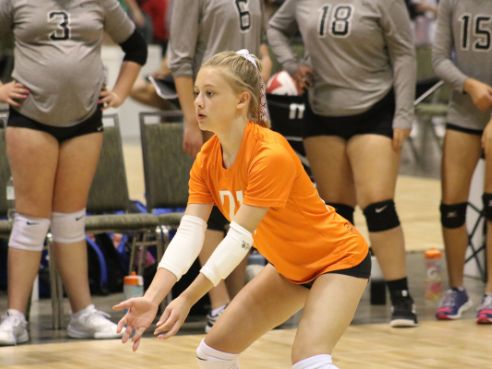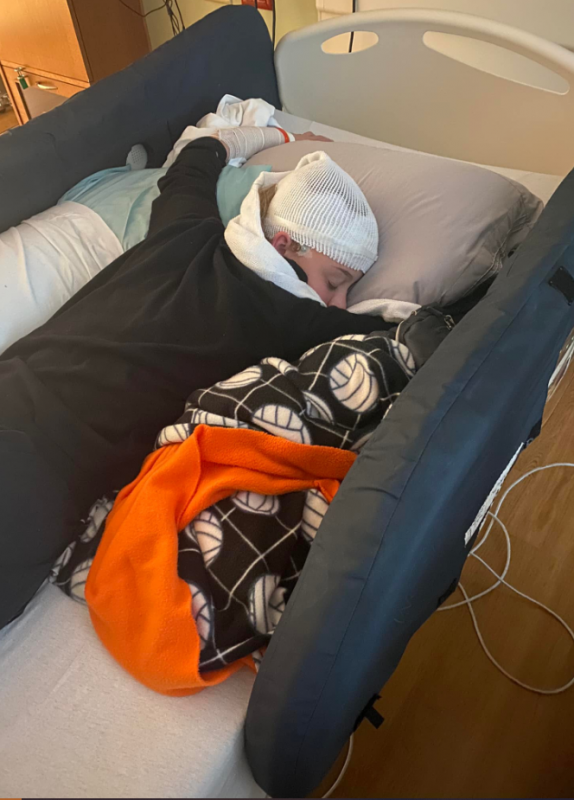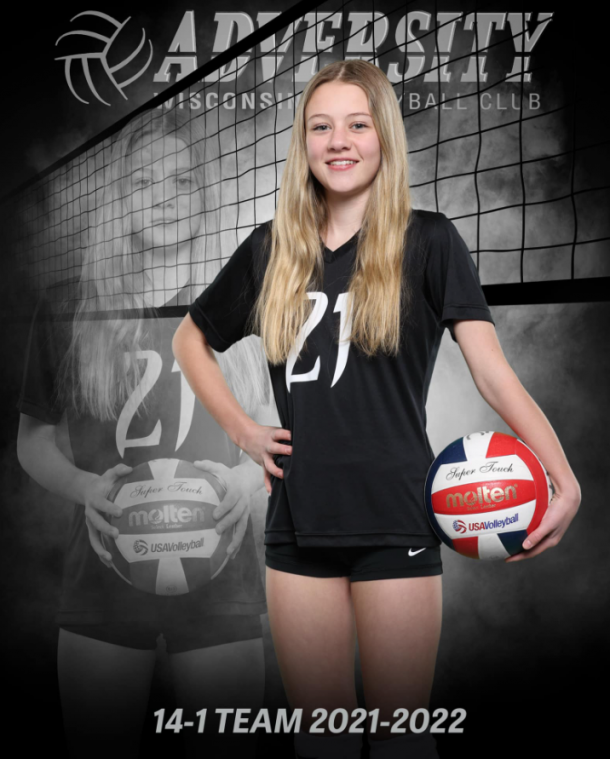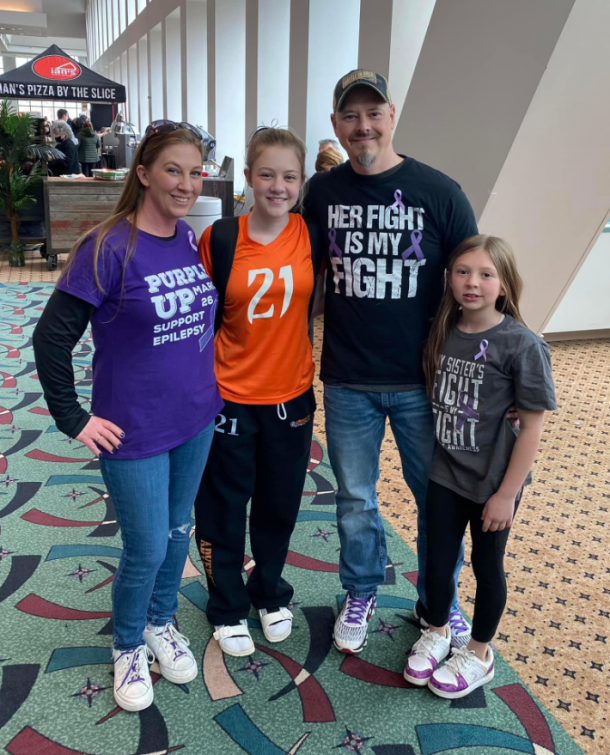Beyond the Court: Epilepsy Won't Stop Laina Stachowicz from Playing Volleyball
06/18/2022
Laina Stachowicz, a libero for the Adversity Wisconsin 14-1 Volleyball Club, has always wanted to study the brain. That interest recently became personal when Laina was diagnosed with two types of epilepsy. Laina told us her story during the 49th AAU Girls' Junior National Volleyball Championships.
By: Kelsey Burr
ORLANDO, Fla. — Thirteen-year-old Laina Stachowicz, a libero for the Adversity Wisconsin 14-1 Volleyball Club, knows exactly what she wants to be when she grows up — a pediatric neurologist.
You see, Laina has been interested in the brain since she was little. At 8 years old, she started a charity for patients going through brain trauma at one of her local hospitals, delivering nearly 1,100 brain-stimulating gifts. But that interest recently became personal — last year, Laina was diagnosed with two types of epilepsy.
Her first seizure came on the final try out date for her volleyball club. She had already made the team, but was looking forward to meeting her new teammates that night.
“It was really scary. I was at the chiropractor getting adjusted, getting ready to go to volleyball, and then it just happened,” Laina said. “I had to go to the emergency room. It was just a lot of emotions and it was really stressful, I cried a lot.”
“It's scary and you don't really know what's next, what's going to happen. But we were kind of hopeful it wouldn't be anything major, right?” Laina’s mom, Jodi Stachowicz, said. “They let her go that first night …after that the doctors talked to us and they said we definitely need her to come in for a hospital stay.”

Laina spent a week at Children’s Hospital of Wisconsin in December 2021 for brain monitoring, as they tried to understand what was triggering her seizures and where in the brain they were coming from.
“There was a lot of pain — having those wires connected to my head, the glue. I had IV's that hurt. It was just a lot of stuff. It hurt, but they did have really good food,” Laina said.
During that week-long hospital stay, Laina and her family finally got some answers. Doctors diagnosed her with two different types of epilepsy.
“When we found out it was two different types of epilepsy, we had a lot more learning to do. We weren't quite sure, like, what does that mean? Does that mean she's going to have more or less seizures? Are the medications going to work?” Jodi said.
“It was a relief [when we got answers], but it was also something new. So we had to get adjusted to that, but we adjusted pretty quickly,” Laina adds. “But there's always that added stress of 'when is it going to happen?’, 'how is it going to happen?’, 'how long is it going to last?’. Is it going to result in something really bad for me, or will I be able to continue on with what I'm doing?”
Her diagnosis didn’t stop her from playing the game she loves. The gym is her ‘happy place’. Now, she just has a new normal.

“Well, obviously, I carry around a lot of meds. I have to take meds at nighttime, and then I also have a lot of different protocols at school now. I have to take tests in different rooms; there's just a lot of safety procedures now,” Laina said.
Laina’s mom shared the diagnosis and their new normal with the Adversity Wisconsin club director and coaches, teaching them how to handle a seizure, the signs to look for, and what to do in emergency situations. Jodi said they were all “extremely supportive and ready to learn.”
Some of Laina’s seizures cause short-term memory loss, and she’ll lose about an hour of her day. Her mom says there are games she doesn’t remember playing, even though she played well. Her coaches can recognize when this occurs, and share with her what happened. And if Laina has to miss a practice due to epilepsy, her coaches work with her to find extra time in the gym.
“My coaches are very, very, very helpful. They know how to do my meds, they know to just, kind of, let it happen,” Laina said. “My teammates are very helpful. They're super sweet, they're awesome. They really help with water, because that's one of my triggers if I don't drink enough water. Like, I'll come off the court if I've been on for a while, and they'll grab my water bottle and they'll squirt it in my mouth.”
On March 26 of this year, which is known as “Purple Day” to support epilepsy awareness, the team and parents used that as a chance to publicly rally behind Laina and show their support.
“We had a tournament that day. Everybody showed up in purple nail polish, purple T-shirts, and shoelaces. One of the coaches wore a purple wig,” Jodi said. “It was fantastic for them to show up and show that they're here for her, she's part of the team, part of the family.”

Throughout her journey this past year, one of Laina’s constants has been her love for volleyball.
“It was just an awesome experience right from the start. I got to know new people, I got to try something new and it kind of just came really fast to me. It was kind of like a hidden talent I didn't know about,” Laina said. “I just love volleyball and I want to play in the future. One of my coaches plays at the collegiate level, and I really want to do that.”
Her other constant? Her interest in the brain.
“I want to be a pediatric neurologist and help people like me. I want to work with kids and the brain,” Laina said.
“I’m extremely proud of her. It’s kind of ironic, she’s been interested in the brain and studying the brain since she was a little kid. So to have something like this happen to her, it was almost like a calling, right? This gives her something more to learn about and dig into and I think it's really going to help her just continue to grow and really want to help other people,” Jodi said. “And I just, I love watching her continue to do what she loves, inspire others, and keep growing.”
 Email
Email Print
Print









